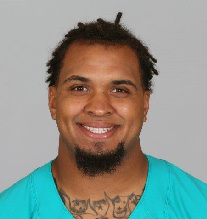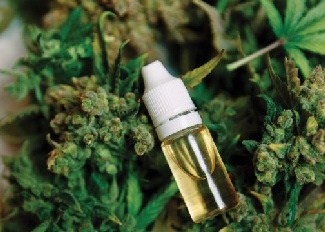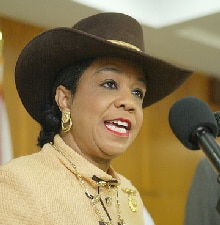Jamaican Prime Minister P.J. Patterson, speaking at OAS, pledges full Caricom support for Haiti
WASHINGTON D.C. – Prime Minister P.J. Patterson of Jamaica, speaking at the Organization of American States (OAS) in Washington on Thursday, March 9 stressed that the Caribbean Community (CARICOM) will do “everything in its power” to ensure that Haiti is no longer isolated.
Patterson spoke to a protocolary meeting of the OAS Permanent Council, addressing OAS Secretary General José Miguel Insulza, Assistant Secretary General Albert R. Ramdin and diplomats from the 34 member states. The session was chaired by Trinidad and Tobago’s Ambassador Marina Valere.
Patterson said CARICOM has pledged to help Haiti “nurture a democratic tradition and receive from the international community the material and technical support it has so long deserved in order to improve the living standards of the Haitian people.” He also called for every effort to bring Haiti into full participation in the various trade negotiations in the hemisphere and the World Trade Organization (WTO). “In this case, there can be no question about the need for special and differential treatment and technical assistance,” he said.
The Prime Minister made the remarks while praising the “pivotal role” of the OAS in settling disputes and helping to bring solution to political crises in the Americas, including in Haiti. He remarked that he and his Caribbean colleague heads of government “welcome and applaud the return of President René Préval as the duly elected leader of Haiti.” He added that Caribbean heads are “all anxious to extend a warm embrace to the democratically constituted government of Haiti at our next summit in St. Kitts and Nevis.”
In welcoming Patterson, Secretary General Insulza hailed the Prime Minister’s political mission and vision-“to make Jamaica a better place for its people, where they feel a greater sense of self-esteem and ownership in their country’s future and are empowered so as to benefit from its development.” The Secretary General noted that Patterson has become synonymous with the fight to alleviate poverty, improve employment, education and “to give voice and focused attention to the plight of the poor and marginalized, not only in Jamaica and the rest of the Caribbean, but worldwide.”
For her part, Ambassador Valere praised the longest-serving Jamaican Prime Minister as an outstanding political figure who, as a Caribbean leader, stands as “a beacon of our region’s dedication to deeply rooted democratic traditions, peaceful interaction with our neighbors, and a deepening process of intra-regional integration.” Valere commended the Jamaican Prime Minister as a “sterling example of an international statesman par excellence,” and noted the high caliber of Jamaica’s contribution to the international and inter-American agenda, including through its Permanent Representative to the OAS Ambassador Gordon Shirley.
In his first address to the Permanent Council as Prime Minister, Patterson-who is retiring from office soon-also expressed disappointment that the Free Trade Area of the Americas (FTAA) process “is faltering on the rock of political will.” He called for a more inclusive global economic governance and integration that is more beneficial to the interests of developing countries, and said this would lead to “greater prospects for tangible signs of development and strengthening democracy in our countries and societies around the world.”
Addressing the member state ambassadors, permanent observers, officials, and other guests, the Jamaican leader referred to a “sense of unease and restlessness” wherever people lack meaningful opportunities for self-expression and self-actualization. “We regard these as fundamental elements of democracy and the civil society we want to establish,” he declared. “In order to meet the challenges which militate against peace and stability, we must provide a truly enabling environment.”
In his wide-ranging remarks, Patterson also outlined the progress with the CARICOM Single Market and Economy, and noted efforts towards a Regional Development Fund. He also stressed the vital role of education, security, health and environment issues, as well as justice, inclusion and inclusiveness, and the rule of law, also touching on the importance of “principle, integrity, honor and justice” in improving the conduct of international and institutional relations.




